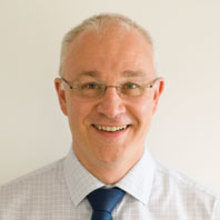From the Chief Executive
Issue: Light
11 August 2015 article

This issue of Microbiology Today comes with the papers for the Society’s Annual General Meeting on 17 September. You will see that they contain a proposal from Council that we operate under a new name: Microbiology Society. The reason is simple. We believe the change will allow us to maximise our effectiveness in the scientific community and in the wider world. The proposal has arisen as Council has reviewed and revised its strategic plans for the coming years.
The core priorities of the Society, the things that matter to members, are of course not changing: world-class conferences, journals publishing the most interesting microbiology research, professional development opportunities for members, influence in key policy areas, education and communication with the wider public. What is new is a reinvigorated effort by Council and the staff to link these activities more coherently, so that the Society can have maximum impact on behalf of our members. The Society’s key strength is the depth and wealth of knowledge among the diverse membership in academia, industry, charities and public service; the revised plans for implementing the strategy will allow us to optimise how we apply this knowledge for the public good, addressing problems in healthcare, environmental, economic and social settings.
These changes follow extensive consultation. Last year we conducted a survey of the membership, this year we have spent time drilling down into your interests with individuals and groups of members in conversations and workshops. The staff, Committees and Council have held their own discussions and seminars, and we have spoken to external constituencies in the media, the policy world, and among funders.
Members want the Society to be ambitious and bold, to keep evolving and improving, so that we can continue to achieve our founding purpose of ‘advancing the art and science of microbiology’, and to press towards Council’s vision: a world in which the science of microbiology provides maximum benefit to society.
Changing the name to Microbiology Society will help us to do this. In part, this is simply because the everyday use of the word ‘general’ has changed. When our visionary founders named the organisation, the word had entirely positive connotations, expressing their desire to offer something valuable for all parts of the microbiology community. Today, it is more often used to imply a lack of focus. But the need for change is not merely about subtle shifts in language. Seven decades ago, the Society concerned itself almost exclusively with the scientific community; researchers instantly understood that the Society’s title was a short-hand to embrace the diversity of prokaryotes, viruses and eukaryotic microbes. In today’s world, we must still focus relentlessly on the needs and concerns of microbiologists, but through projects like the Small World Initiative, we also need to ensure that the wider public, policy-makers, school pupils and others can engage with the crucial importance of our subject. To these constituencies, our current name is slightly opaque and a bit of a mouthful.
‘Microbiology Society’ says it all in the fewest words and simplest form. Our business is microbiology in all its infinite beauty and diversity, and we are a society of like-minded individuals who come together to support one another in moving the field forward.
Changing the name of an organisation after 70 successful years is a big step. Council’s proposal is not about changing the Society’s core identity, it is about preserving it, and helping us to do our job even more effectively in the future. The world may have changed around us but the fundamental principles of our Society have not. The ambition of our founders was timeless: “that workers in the various fields of microbiology might find common ground and better opportunities for making contact with one another”.
Under a new name – Microbiology Society – the members, Council, staff and Committees will continue to work to make this a reality, so that you can develop your careers in the fascinating subject of microbiology, and so your expertise and experience can have the biggest possible impact in the world.
PETER COTGREAVE
Chief Executive
[email protected]
